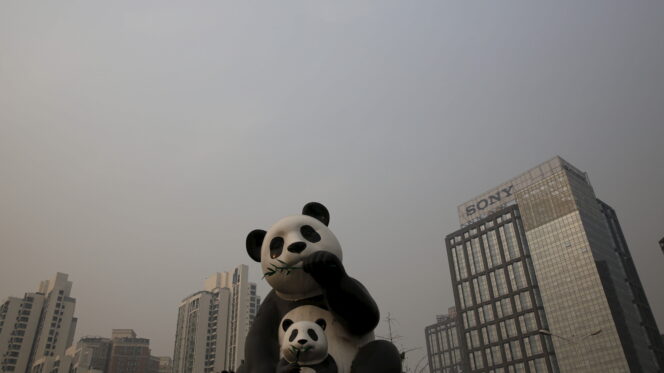Cop26: Climate Justice Visions From the Global South
Organisers from West Papua to the Philippines respond to Cop26.
by Connor Woodman
10 November 2021
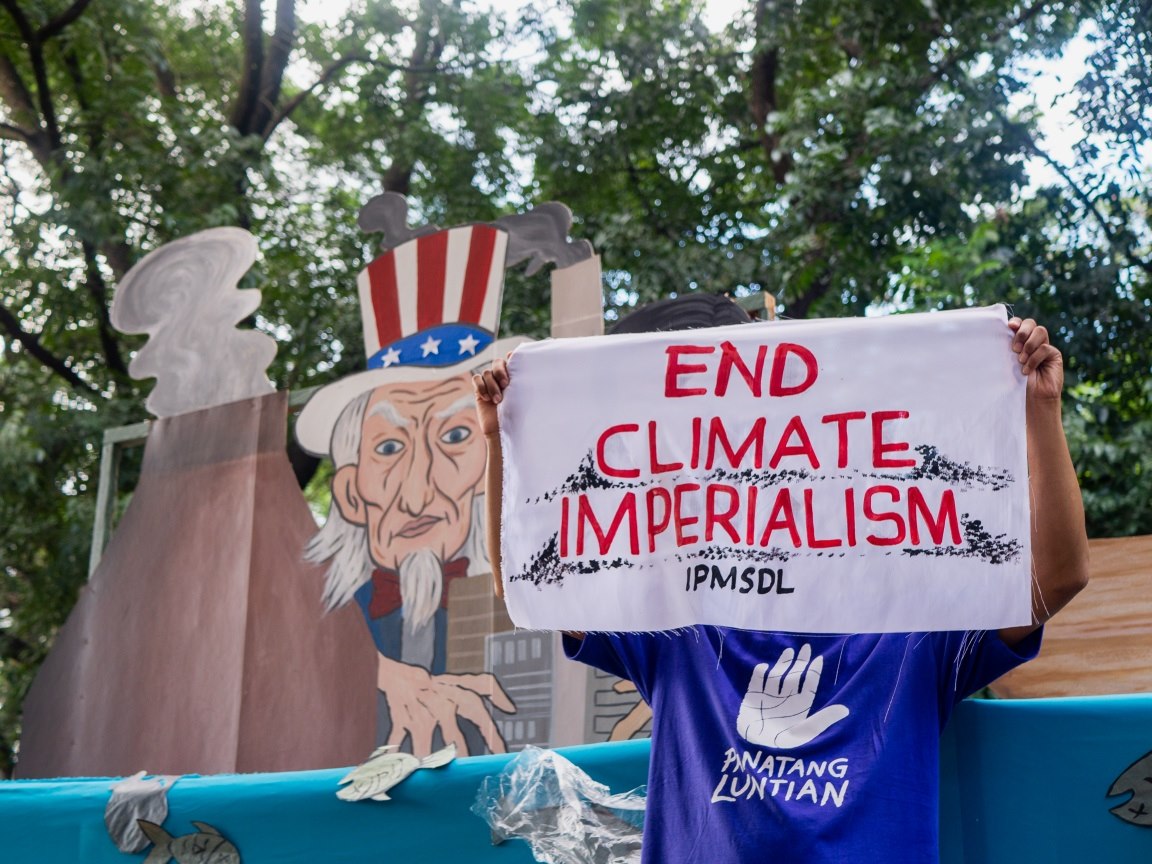
This year’s Cop26 has seen unprecedentedly low representation from the Global South. For many outside the West, vaccine apartheid, lack of funding and the UK’s border regime have placed prohibitive obstacles in the way of travelling to Glasgow.
Despite this, voices from the Global South are more vital than ever for finding a path through the climate crisis. Indigenous cosmologies counteract the West’s subjugation of nature; farmers’ struggles achieve international cooperation far in advance of Europe’s nationally-blinkered left. Those on the climate frontlines organise with an urgency and depth barely visible in the nations most responsible for our predicament.
Helping counter the dominance of elite Western voices at Cop26, five thinkers, organisers and leaders from Ecuador to Mauritius here outline an environmentalism of the poor, sharing their visions for climate justice and telling us what Cop26 looks like from the places already burning amid the ecological bonfire.
Ecuador.
Paccha Turner Chuji, an Indigenous activist from the Ecuadorian Amazon, outlines the resistance and endurance of Indigenous women, and her culture’s visions of Sumak Kawsay, a world-view of harmonious living as an alternative to Western models of development and modernity.
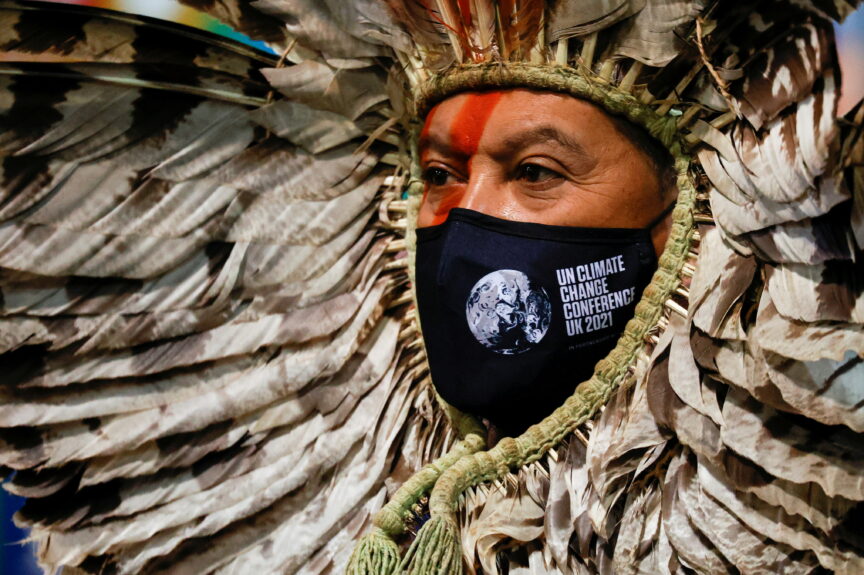
The world is agonising. It has been distorted by an ideological system that has no concept of equilibrium or harmony. This model of development, modernism and Western civilisation is built on the illusion that humans are separate from and superior to nature, and therefore have the right to use her – and other humans – as tools for individualistic capitalist goals.
Specifically within capitalist societies, there is now an apathetic acceptance and even normalisation of the chaotic stage the world is in. Many have allowed their fire of hope to go dormant, and the belief has taken hold that any alternative is doomed to fail. At this crucial moment, in the midst of Cop26, we must not allow this system and unbalance to continue. It is essential that this conference amplifies the voices of those who are suffering the most from the devastating effects of the superpowers that have silenced them.
As an Amazonian Indigenous and British woman, I believe that a major step towards global change is to alter the Western mentality that has been inculcated into the minds and hearts of people worldwide. So many marginalised and suppressed perspectives hold keys that can help us to thrive.
Since birth, my Kichwa Amazonian culture has been a bridge enabling me to experience these alternative visions. We believe in the Pacha Mama: ‘Pacha’ means the cosmos, both the physical and the internal spiritual world; ‘Mama’ means mother. In our conception there is an understanding that the Pacha is sacred, and as a mother, we love, respect and defend her. For thousands of years, Indigenous peoples have played an essential role in guarding her.
Indigenous women in particular have always had a profound connection with the Pacha. Apart from having the power to give life, women are usually in charge of taking care of the family, transferring ancestral knowledge, working in the fields (commonly while carrying their babies on their backs), storing seeds, making chicha, reproducing material culture, preparing medicines and keeping an overarching harmony within the family and community. Indigenous women have also driven mobilisation for justice for the oppressed, both humans and nature, across Abya Yala (the Americas). All of this, on top of centuries of resistance to an inhumane, colonial, racist, violent, patriarchal capitalist system.
This resistance and struggle for justice of my Indigenous sisters and brothers, in unity with our ancestral history and knowledge, offer an alternative way of existence to the pernicious Western model of development. We know it as Sumak Kawsay, which loosely translates as ‘coexisting in harmony’. It holistically comprises philosophical, spiritual and political dimensions that exist within a harmonious and inseparable relationship with the Pacha. It is about the equilibrium between all forces that exist on Earth, and coexistence and understanding between the whole of humanity and nature. Sumak Kawsay aims to recuperate that innate balance that the planet needs. It is an example of the pluriversal visions that exist worldwide. Visions that are held by those on the frontline, struggling against the killing of the planet. Visions which can teach us to become defenders of the future of life on Earth.
Mozambique.
Daniel Ribeiro of Justiça Ambiental, the Mozambique branch of Friends of the Earth, explains how Global North countries are facilitating renewed fossil fuel extraction in Africa and pushing false solutions that will only intensify the crisis.
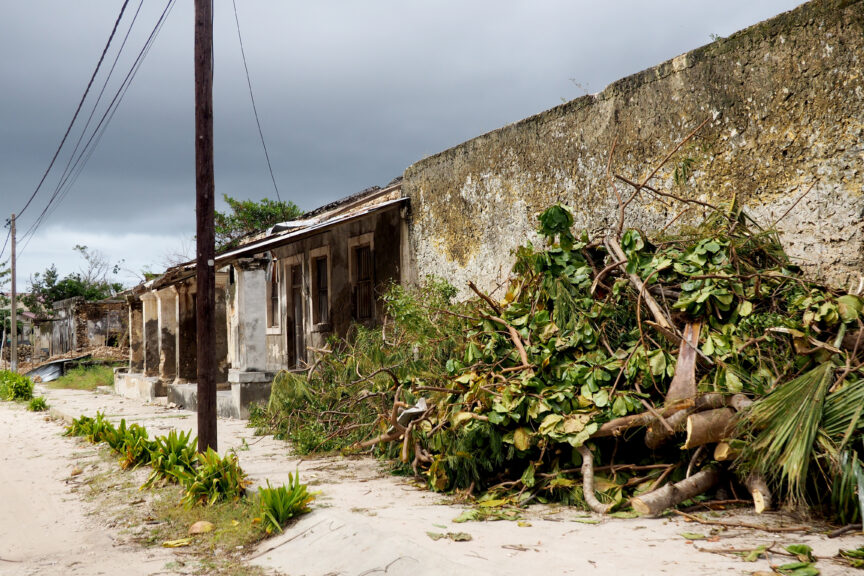
Mozambique is one of the ten poorest countries in the world. The government is expanding the fossil fuel industry, primarily coal and gas. The Global North is sending money to Mozambique to develop fossil fuels: over $1bn for gas projects from the UK alone. As northern companies struggle to get these damaging projects accepted in the Global North, they’re looking for areas with less restrictions, like Mozambique.
We always hear the false claim that Africa needs fossil fuels to develop as Europe did. The difference is that Europe controls the companies, the patents, distribution and the markets for these resources. We have none of that. We have the resources for a minute, and as soon as they’re taken out of the ground, they’re controlled by American or European companies. Not one single African country has developed through fossil fuels; in fact, developing these industries creates militarisation, diverts funds from social spending, and creates massive political instability.
This is already starting to happen in Mozambique. FRELIMO, the party that led us to independence from Portugal’s colonialism and fought apartheid South Africa, is facilitating it. A lot of our high-level officials have been involved in serious criminal activities, and our military is implicated in the ivory and drug trades. We’re one of Africa’s biggest money laundering hubs. Mozambique has one of the continent’s largest corruption scandals, involving illegal loans facilitated by the London branches of Credit Suisse and VTB. These loans plunged our country into huge debt, which rose from 40% to 150% of our GDP. The future earnings of these coal and gas assets were used as collateral for these loans, which fed the elites’ lavish lifestyles.
The solutions being offered by the Global North at Cop26 are only compounding these issues. Concepts like ‘net zero’ and ‘offsetting’ are attempts to get around the fundamental need to cut carbon emissions. Aiming for ‘net zero’ allows you to offload your emissions onto someone else, if the resource extraction and production processes are happening in a different country. And if you are going to plant billions of trees to capture carbon in the atmosphere, whose land are you going to take to do it?
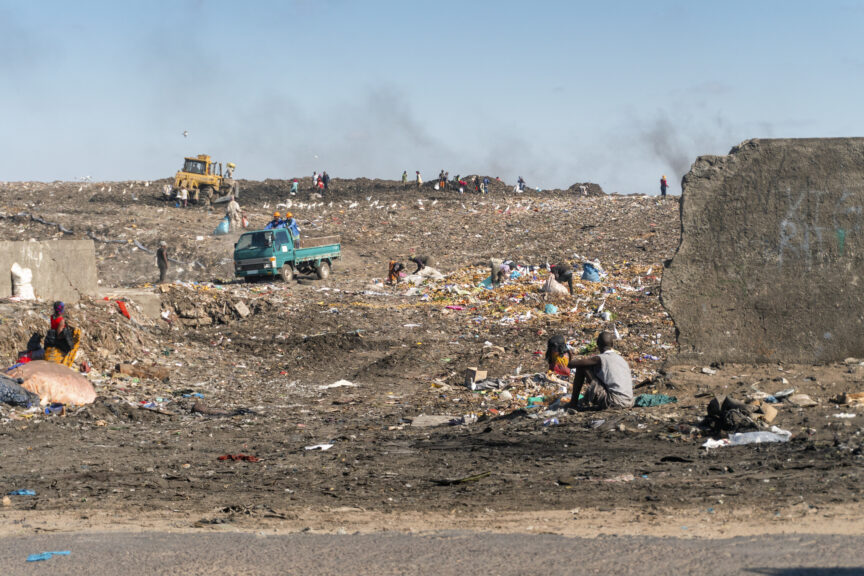
This issue of land is vital for a country like Mozambique where around 70% of people are subsistence farmers and fisherfolk. The link to the land is really crucial. We had this issue when a 14 million hectare Brazilian-Japanese agribusiness project was proposed here. Our traditional farmers got organised on the ground and made sure that investors knew this was going to be a headache. They linked up with the landless peoples movement in Brazil, who explained to our farmers how they had lost their land due to similar agribusiness projects. People in Mozambique also worked with Japanese groups to highlight Japan’s role in stealing community lands in Africa, going to the Japanese parliament and media. We highlighted the importance of low-impact traditional small-scale farming and we won. The funding was cut and the project was shelved.
These are the kinds of struggles we must wage to fight environmentally destructive projects. Traditionally civil society has helped expose the Global North’s gimmcky solutions at the Cops, but this year’s Cop is extremely exclusionary. Thanks to the UK’s red list, the lack of vaccine access and the difficulty in getting visas, it has been very difficult for Africans to participate. So Cop26 is the best chance Global North governments have to push through their preferred methods and false narratives.
West Papua.
Home to one of the biggest rainforests on the planet, West Papua has been occupied by Indonesia since 1963. A West Papuan tribal elder within the United Liberation Movement for West Papua (ULMWP), Amunggut Tabi, explains why the world must listen to the environmental knowledge of Indigenous Papuans.
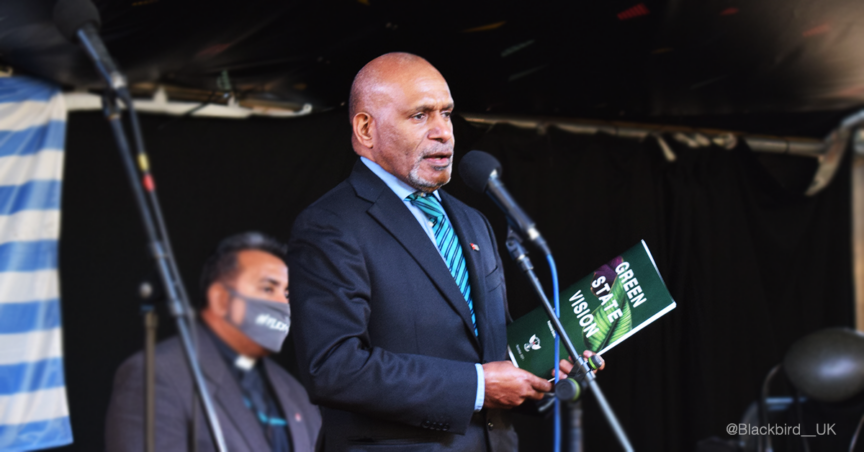
The ULMWP launched our ‘Green State Vision’ for an independent West Papua at COP26 on 4 November. To our tribal elders, a green state means: “Leave us alone!” It means, “Let us show you the way to live on Earth.” We do not need human rights campaigners or any religious or environmental organisations to come and teach us how to live.
There is no need for anyone to feel that we are poor, that we need money, more buildings or roads. We never asked anyone to come and help us. The slogan, “Leave us alone!” has been voiced by those struggling for a free and independent West Papua since Benny Wenda began campaigning in the UK in 2002. Us saying, “Leave us alone!” means: anyone who comes here must do so with respect for the norms, values and systems that operate in New Guinea and Melanesia. Western and Indonesian governments and companies have shown no respect for our way of life, destroying our forests, scarring our mountains and polluting our rivers.
West Papuans are standing up with our Green State Vision, a vision that encapsulates our primitive communist wisdom or Indigenous knowledge. We have maintained New Guinea’s cultural- and bio-diversity. We have protected the ice of our tropical glaciers. We have kept one of Earth’s biggest rainforests green for millennia.
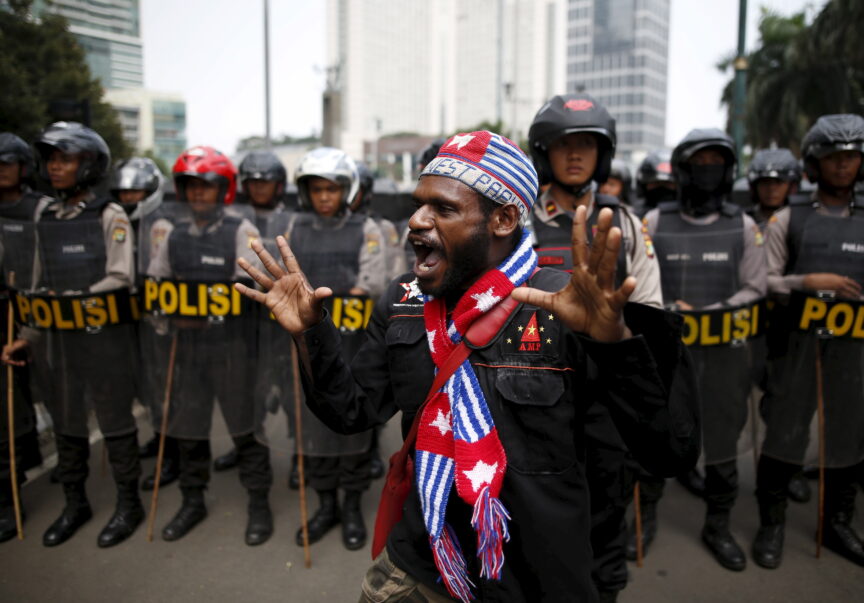
As tribal elders, we in Melanesia look after the lives of our communities by emphasising ‘balance’. We always think about the impacts of what we say and do to others, be it spirits, plants, animals, matter or other human beings. If cutting down a tree might bring about a flood, or might not be good for spirits around the area, we do not cut it down. We know when to hunt or fish, and when not to. Our knowledge of nature is embedded in our communal restrictions and taboos. We call this ‘simply-joyful life’, life in harmony as nature.
Our vision is about running a modern government within Indigenous systems. Our vision is being declared by the Provisional Government of our nation-state-in-waiting. We do not need any environmentalists or anthropologist from the West to teach us how to make peace with nature. We are the experts; we have proved it for centuries. We are ready to teach the world.
Mauritius.
Aichah Soogree paints a dark picture of ecological collapse, government neglect and faltering resistance on her island of Mauritius, straining on the front-lines of climate change.
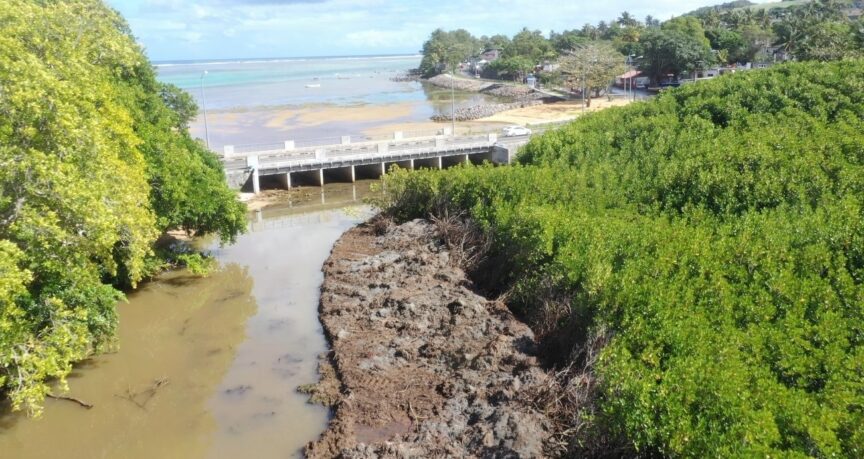
Hurt, anger and sadness has been rocking Mauritius for some years now. Some barely dare to dream of better futures.
The law has been amended in every possible way to encourage beach-grabbing on an island being eaten up by the sea. Development projects in the southern region of Bel Ombre, supposedly a protected area, threaten beaches, wetlands and lakes that were common lands since before independence. Lakes in the north are no longer accessible – except as landscapes for the private villas of gated communities. These projects are also attacking the dwindling wildlife on the island. The government has been waging war against indigenous bats, public beaches like Pomponette have been privatised, indigenous trees in Chamarel slashed, and flash floods in the south totally mismanaged.
The government, using the cover of its own green-washing committees like the National Youth Environment Council of Mauritius, has been racing to pass the Offshore Petroleum Bill, just a year after the Wakashio oil spill. Where once relative transparency reigned, bills like this are now being turbo-charged through parliament, hoping to leave civil resistance is disarray.
This resistance exists, but the conditions for organising are becoming harder. Cyclones, flashfloods and changing seasons are putting additional pressure on those who struggle to make a living, and Covid has only made this worse, leading to a second epidemic of violence, addiction and despair.
It’s not that people aren’t organising, but groups like Aret Kokin Nou Laplaz are being labelled ‘extremist’ for even holding up posters. A government intensifying ecological collapse refuses to listen to fisherfolk, youth and even scientists. As our Prime Minister goes to Cop26 asking for climate financing, his government is rebuking fisherfolk in the south of Mauritius who are reminding everyone that they continue to pay the price for last year’s oil spill.
Nothing at Cop26 is presenting us with a possible way out of this chaos. Mauritius is a sinking boat in the ocean, with a captain actively making holes in the hull; the bodies of the vulnerable are being used to plug the gaps. But that won’t stop the looming shipwreck.
The Philippines.
Lia Mai D. Torres, executive director of the Center for Environmental Concerns, explains how their campaigns are embedded within a much broader constellation of mass organisations in the Philippines.
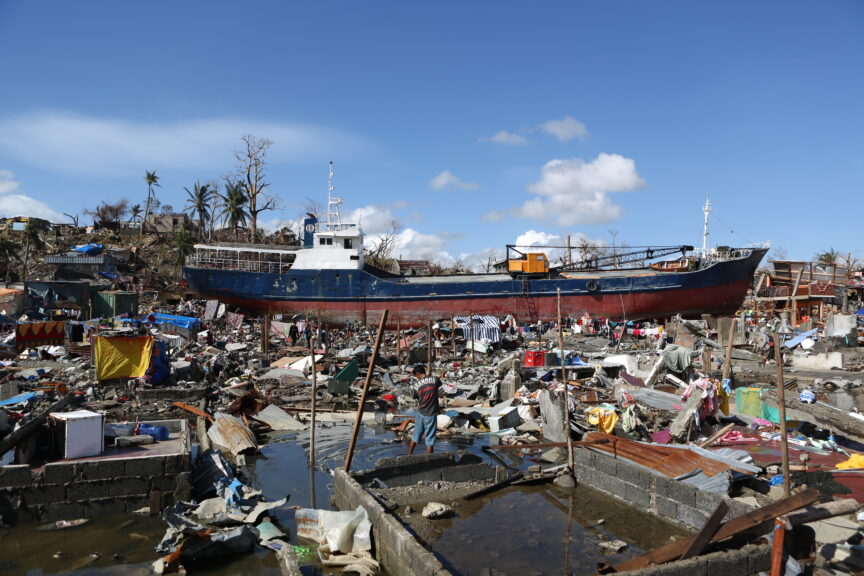
What we have learned during our 32 years of existence is that struggles are not won by a few organisations but through the united, systematic and organised efforts of many sectors and groups of society.
Grassroots movements are pivotal for achieving climate justice; it is through them that we learn the actual situation and the ways to address environmental challenges. From petitions, community meetings, policy lobbying and legal battles, to street protests and people’s barricades to stop environmentally destructive operations, we see ourselves as part of a bigger movement for social and climate justice. From this standpoint we have won victories including halting mining operations and stalling destructive development projects.
Local communities are most affected by climate change, especially the poorest sectors of Philippine society such as farmers, fisherfolk and indigenous people and vulnerable groups like women and youth. We partner with grassroots and community-based organisations to address these environmental issues, coordinating with other organisations elsewhere in the Philippines to launch national campaigns.
In Nueva Vizcaya province, the Australian-Canadian company OceanaGold has been widely opposed by the Bugkalot and Tuwali indigenous people due to their displacement from their homes and farmlands as a result of the mine. In 2019, the residents put up a people’s barricade to try and halt the operations. We supported them by helping establish the national alliance Save Nueva Vizcaya Movement, conducting awareness raising activities at the local and international level, and conducting a fact-finding mission.
Meanwhile, big national and international corporations benefit from large scale mining operations, the construction of large dams, land reclamation and agribusiness plantations. Local communities are more vulnerable to the impacts of climate change: they are displaced, their livelihoods lost, and their way of life forever changed. The government that is supposed to uphold our constitutional right to a balanced and healthy ecology has colluded with the business sector, ensuring these projects are pushed through, often with violence.
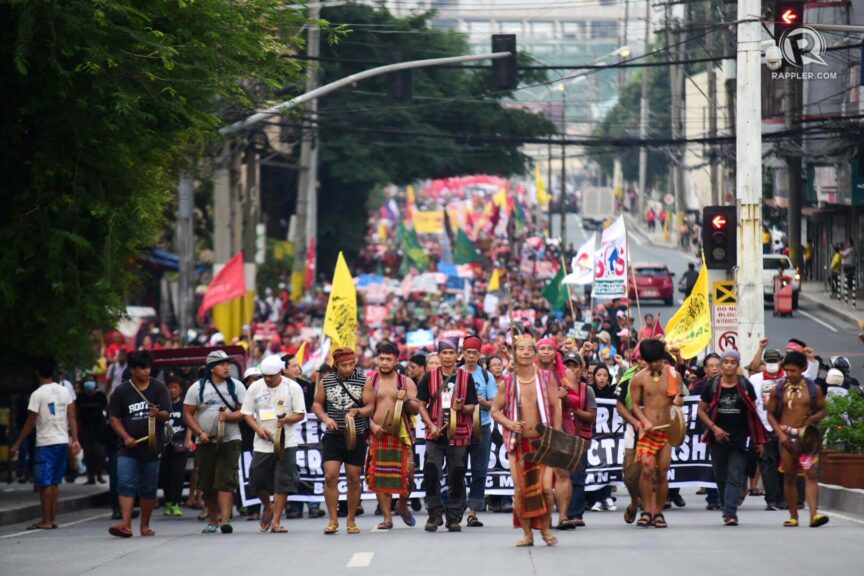
We had hoped that the Cop26 process would ensure local communities at the frontlines of environmental defence are able to participate. However, many networks we operate within have wanted to attend but are not able to because of financial and logistical limitations.
We demand that Cop26 bring attention to how the highest emitters, imperialist countries, are causing negative social, economic and cultural impacts on developing and poor countries, particularly the poor and vulnerable groups, exacerbating existing inequalities and poverty. We have already witnessed leaked documents showing how governments and corporations are lobbying to further water down any climate commitments – but this should not sway the climate talks.
Connor Woodman writes for Novara Media and other outlets.

